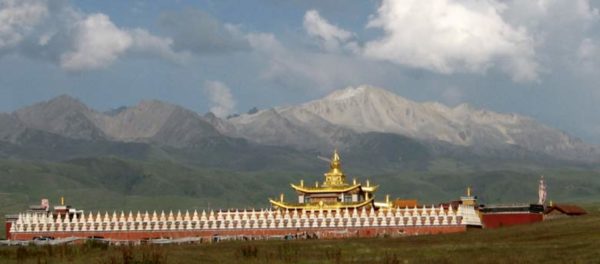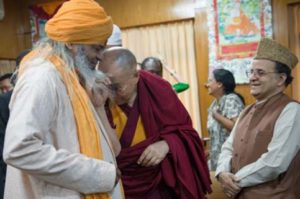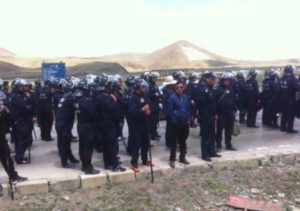The ‘poisonous fruit’ of China’s religious policy in Tibet

As China publishes its online database of Communist Party approved Tibetan Buddhist reincarnations, a vibrant online debate among Chinese and Tibetan netizens emerged following a scathing critique of China’s religious policy in Tibet by a Tibetan scholar living in Beijing. The critique, translated into English by ICT, refers to current religious controversies in Tibet as the ‘poisonous fruit’ of policy developed over the last 50 years by the Chinese leadership.
The Dalai Lama’s practical path to peace
 Writing from a United States Institute of Peace conference in which the Dalai Lama mentored 28 young leaders from across Asia and Africa, a columnist from the Washington Post described the Dalai Lama’s method:
Writing from a United States Institute of Peace conference in which the Dalai Lama mentored 28 young leaders from across Asia and Africa, a columnist from the Washington Post described the Dalai Lama’s method:
The uniqueness of the Dalai Lama’s voice in global debates is his emphasis on the inner life. He roots the pursuit of peace in a “calm mind” — and displays it. “External disarmament,” he told the gathered young activists, “begins with internal disarmament. If you show anger, things get worse. A genuine smile and warmheartedness and a joke are the only way to cool things down.”
It is good advice for anyone facing conflict — as well as the only basis for a peace that involves trust, forgiveness and healing.
Protests against Chinese mining operations in eastern Tibet
 Over 100 Tibetans gathered in Lhagang, a small town in Kham, to protest against the mining of a sacred place nearby on May 4, 2016. A Tibetan familiar with the situation told the Tibet Post that “the ongoing mining has led to toxic wastes being dumped into the river resulting in the death of a large number of fish.” Pictures from social media, including the above, show a heavy-handed response from Chinese authorities.
Over 100 Tibetans gathered in Lhagang, a small town in Kham, to protest against the mining of a sacred place nearby on May 4, 2016. A Tibetan familiar with the situation told the Tibet Post that “the ongoing mining has led to toxic wastes being dumped into the river resulting in the death of a large number of fish.” Pictures from social media, including the above, show a heavy-handed response from Chinese authorities.
USCIRF finds continued crackdown and suppression of Tibetan Buddhists in 2016 annual report
The U.S. Commission on International Religious Freedom (USCIRF) released its 2016 Annual Report earlier this week. The China chapter of the report notes that the year “was marked by the Chinese government’s deliberate and unrelenting crackdown on human rights and dissent.” USCIRF observes in its key findings for China that, as in recent years, the Chinese government continued to “implement a discriminatory and at times violent crackdown” on both Tibetan Buddhists and Uyghur Muslims and their rights. It states that the PRC continued its tight control over Tibetan Buddhists, “strictly monitoring and suppressing their cultural and religious practices,” and also notes that the central government again stated that it had the authority to select the next Dalai Lama.
Harry Wu, Chinese human rights champion, passes away
The Board of Directors and the staff of the International Campaign for Tibet are deeply saddened by the passing of Harry Wu. Harry was a staunch human rights defender whose life-long mission was the documentation and exposure of forced labor camps (Laogai) in China. Harry was a dear friend to the Tibetan people and had great respect for His Holiness the Dalai Lama. For a statement by ICT Board Chairman Richard Gere, please click here.

